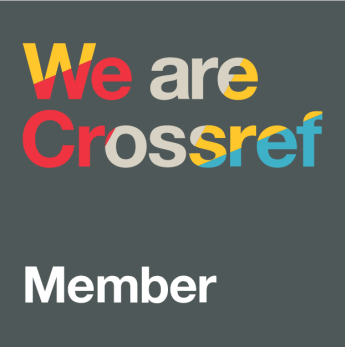An Analysis of School Counselors’ Creative Personality in West Bandung Regency
DOI:
https://doi.org/10.22460/q.v7i2.3860Keywords:
Keywords, creative personality, guidance and school counselorAbstract
Personality is one of the aspects of a school counselor’s professional competence, which is shown by the ability to carry out creative and innovative services. This study aims to profile and analyze school counselors’ creative personalities in West Bandung Regency. This survey study distributed a creative personality questionnaire through Google Form to sixty-eight school counselors in junior high schools in West Bandung Regency. The study result showed that 18% of the participants have low creativity, 60% have moderate creativity, and 22% have high creativity. Further scrutiny through sub variable analysis showed that 19% of participants have low creativity in terms of product, while 56% and 25% have moderate and high creativity, respectively. Regarding participants’ creative attitude, 12% exhibited a low attitude, 69% exhibited a moderate attitude, and 19% exhibited a high attitude toward creativity. Lastly, 18% of participants have low creative behaviors, 68% have moderate creative behaviors, and 16% have high creative behaviors. The result of this study could be used as empirical data for developing school counselors’ creativity.
References
Auliyah, A., & Flurentin, E. (2016). Efektifitas Penggunaan Media Film Untuk Meningkatkan Empati Siswa Kelas Vii Smp. Jurnal Kajian Bimbingan Dan Konseling, 1(2), 19–26. https://doi.org/10.17977/um001v1i12016p019
Aziz, R. (2009). Karakteristik Pribadi Kreatif dan Kemampuan Menulis Kreatif. Anima, Indonesia Psychilogical Journal, 24, 116–123.
Bakhtiar, M. I. (2015). Pengembangan Video Ice Breaking Sebagai Media Bimbingan Konseling. Jurnal Psikologi Pendidikan Dan Konseling, 1(2), 150–163. http://ojs.unm.ac.id/index.php/JPPK/article/view/1816
Billah, A. Z. M., & Erfantinni, I. H. (2021). Peran BK dalam Memberikan Pemahaman Pendidikan Seks kepada Siswa. Konseling: Jurnal Ilmiah Bimbingan Dan Konseling, 2(4), 2686–2875. https://doi.org/10.31960/konseling.v2i4.1015
Effendi, M. (2013). Pengembangan Media Blog Dalam Layanan Informasi Bimbingan Dan Konseling. Jurnal BK UNESA, 1(1), 1–20. https://jurnalmahasiswa.unesa.ac.id/index.php/jurnal-bk-unesa/article/view/1951
Feist, J., & Feist, G. J. (2017). Theories Of Personality, Eighth Edition. In Salemba Humanika (9th ed.). Mc Graw Hill.
Griffin, P., & Care, E. (2015). Assessment and Teaching of 21st Century Skills: Method and Approach. In E. C. Patrick Griffin (Ed.), Educational Assessment in an Information Age (2nd ed.). Springer.
Jung, H.-N., & Lee, C.-H. (2011). A Study on the Impact of Empathy and Creative Personality of a Counselor on the Working Alliance. Journal of the Korea Academia-Industrial Cooperation Society, 12(4), 1663–1674. https://doi.org/10.5762/kais.2011.12.4.1663
Kemenristekdikti. (2018). Pedoman Penyelenggaraan Program Pendidikan Profesi Guru.
Lawrence, C. (2012). Jumping off the couch: Infusing creativity into counselor education. ProQuest Dissertations and Theses, April, 283. https://doi.org/10.25774/w4-n7qq-y845
Manurung,A.M, Novita Krisdayanti Tanjung, Y. D. B. T. (2021). Analisis Kinerja Guru BK dalam Merencanakan Program Layanan BK di Masa Pandemi. Jurnal Bimbingan Dan Konseling, 1(1), 14.
Munandar, U. (1997). Inisiatif Dan Kreativitas Anak. Psikologika, 2, 31–41.
Munandar, U. (2009). Pengembangan Kreativitas Anak Berbakat. Rineka Cipta.
Prasetiawan, H., & Alhadi, S. (2018). Pemanfaatan Media Bimbingan dan Konseling di Sekolah Menengah Kejuruan Muhammadiyah se-Kota Yogyakarta. Jurnal Kajian Bimbingan Dan Konseling, 3(2), 87–98. https://doi.org/10.17977/um001v3i22018p087
Putra, D. (2017). Proses Berpikir Kreatif Guru BK dalam memunculkan Minat Siswa mengikuti Layanan Bimbingan kelompok di SMA N 1 Sungayang. IAIN Batusangar.
Rakhmawati, D. (2017). Konselor Sekolah Abad 21: Tantangan Dan Peluang. Jurnal Konseling GUSJIGANG, 3(1), 58–63.
Rhodes, M. (1961). Analysis of Creativity Can it be taught ? Phi Delta Kappan, 42(7), 305–310.
Runco, M. A. (2014). Creativity: Theories and Themes: Research, Development, and Practice. In Creativity: Theories and Themes: Research, Development, and Practice (2nd ed.). Elsevier. https://doi.org/10.1016/C2012-0-06920-7
Runco, M. A., & Jaeger, G. J. (2012). The Standard Definition of Creativity. Creativity Research Journal, 24(1), 92–96. https://doi.org/10.1080/10400419.2012.650092
Smith, J. K., & Bistocchi, M. (1983). Environmental Influences on Creativity Measurement. Journal for the Education of the Gifted, 6(4), 279–288. https://doi.org/10.1177/016235328300600405
Susanto, E. (2015). Laporan Hasil Uji Validitas dan Reliabilitas pada Inventori Kepribadian Kreatif (Issue December 2015). https://doi.org/10.13140/RG.2.1.4535.8165
Susanto, E., Novitasari, Y., & Yusuf, S. (2018). Creative Personality Inventory. 1. https://doi.org/10.31227/osf.io/fnp87
Torrance, E. P. (1984). The Role of Creativity in Identification of the Gifted and Talented. Gifted Child Quarterly, 28(4), 153–156. https://doi.org/10.1177/001698628402800403
Wicaksono, G. N. N. (2013). Penerapan Teknik Bermain Peran dalam Bimbingan Kelompok untuk Meningkatkan Kemampuan Komunikasi Interpersonal Siswa Kelas X Multimedia SMK IKIP Surabaya. Mahasiswa Bimbingan Dan Konseling, 1(1), 61–78.
Downloads
Published
How to Cite
Issue
Section
License
Copyright (c) 2023 QUANTA

This work is licensed under a Creative Commons Attribution-ShareAlike 4.0 International License.
Quanta: Jurnal Kajian Bimbingan dan Konseling dalam Pendidikan is licensed under a Creative Commons Attribution-ShareAlike 4.0 International License. Authors who publish with the Quanta Journal agree to the following terms:
- Authors retain copyright and grant the journal right of first publication with the work simultaneously licensed under a Creative Commons Attribution License that allows others to share the work with an acknowledgment of the work's authorship and initial publication in this journal.
- Authors are able to enter into separate, additional contractual arrangements for the non-exclusive distribution of the journal's published version of the work (e.g., post it to an institutional repository or publish it in a book), with an acknowledgment of its initial publication in this journal.
- Authors are permitted and encouraged to post their work online (e.g., in institutional repositories or on their website) prior to and during the submission process, as it can lead to productive exchanges, as well as earlier and greater citation of published work.
























